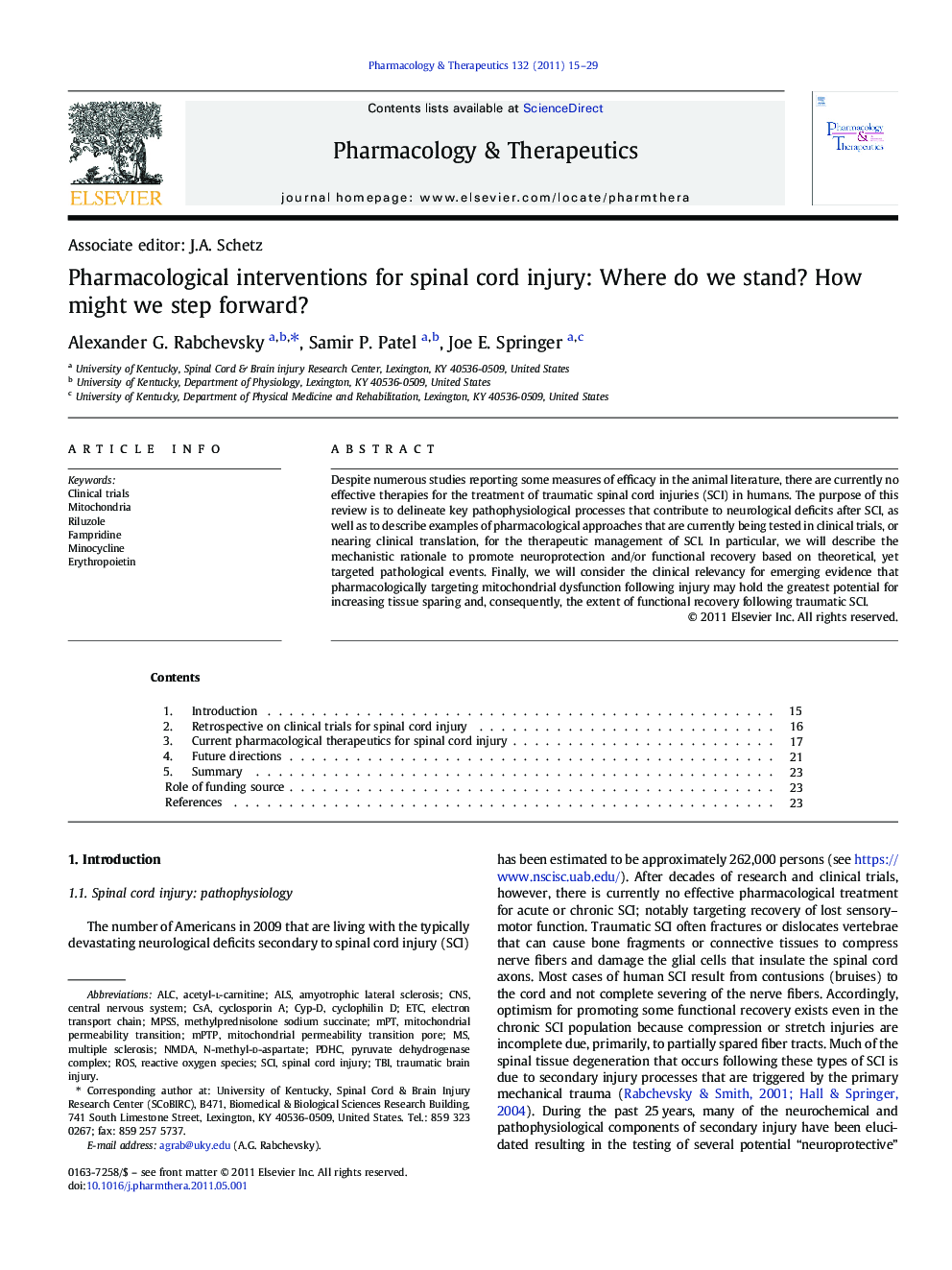| Article ID | Journal | Published Year | Pages | File Type |
|---|---|---|---|---|
| 2563621 | Pharmacology & Therapeutics | 2011 | 15 Pages |
Despite numerous studies reporting some measures of efficacy in the animal literature, there are currently no effective therapies for the treatment of traumatic spinal cord injuries (SCI) in humans. The purpose of this review is to delineate key pathophysiological processes that contribute to neurological deficits after SCI, as well as to describe examples of pharmacological approaches that are currently being tested in clinical trials, or nearing clinical translation, for the therapeutic management of SCI. In particular, we will describe the mechanistic rationale to promote neuroprotection and/or functional recovery based on theoretical, yet targeted pathological events. Finally, we will consider the clinical relevancy for emerging evidence that pharmacologically targeting mitochondrial dysfunction following injury may hold the greatest potential for increasing tissue sparing and, consequently, the extent of functional recovery following traumatic SCI.
